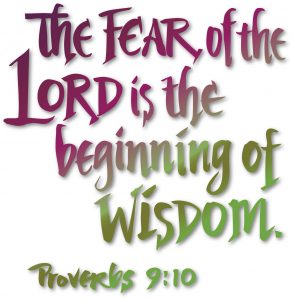One More Year of Choices
By Barbara Dahlgren
 Last time we explored what it means to be a “know-it-all.” This time we will talk about being a fool. While it’s true all “know-it-alls” are fools, it is also true that not all fools are “know-it-alls.” There is a fool bigger than the person who knows it all; it’s the person who argues with him.
Last time we explored what it means to be a “know-it-all.” This time we will talk about being a fool. While it’s true all “know-it-alls” are fools, it is also true that not all fools are “know-it-alls.” There is a fool bigger than the person who knows it all; it’s the person who argues with him.
If we were honest with ourselves, we would probably admit we are all a little foolish at times. That’s why a Welsh adage says, “If every fool wore a crown, we should all be kings.”
Since April Fool’s Day is fast approaching, I thought it would be interesting to explore what it means to be a fool.
Dictionary definitions of a fool are: one who lacks judgment or prudence, one who acts unwisely, or one who is silly. The Bible has a lot to say about fools, and most of it is not good.
When the word “fool” is used in the Bible, it usually refers to one having moral deficiencies rather than intellectual ones. Here are just a few examples:
- Proverbs 1:7 – Fools despise wisdom and instruction.
- Proverbs 10:18 – Fools spread slander.
- Proverbs 10:21 – Fools die for lack of wisdom.
- Proverbs 12:15 – Fools don’t listen to advice.
- Proverbs 12:23 – Fools do not know how to keep their mouths shut.
- Proverbs 14:29 – Fools are impulsive.
- Proverbs 16:22 – Fools do not listen to instruction.
- Proverbs 17:10 – Fools reject discipline.
- Proverbs 18:2 – Fools love to give their opinions to others.
- Proverbs 18:13 – Fools don’t listen.
- Proverbs 23:9 – Fools despise wisdom.
- Proverbs 28:26 – Fools trust in their own hearts, instead of trusting God.
- Proverbs 29:11 – Fools cannot control their emotions.
These “fools” are not uneducated, stupid, or dumb. However, most of the time they misuse what they do know, or reject it all together. They do not want to be confused with the facts. They do not want to listen to the voice of reason. They will gladly give us their opinions but do not value ours. They are a pain to be around! Do we know anyone like that? Or a better question might be: Are we like that????
The opposite of a fool is one who has wisdom. The wise shall inherit glory, but shame is the legacy of fools. (Proverbs 3:35) So if we don’t want to be fools, we need to get wisdom. (Proverbs 4:5) Wise people tend to manage their lives well because they trust God and heed His instructions. They set sail through life learning to navigate both smooth and rough water.
Consider this… Proverbs has as much to say about wisdom as it does about fools. True wisdom begins with God. He is the way, the truth, and the life. (John 14:6) The fear of God is the beginning of wisdom. (Proverbs 1:7) This fear does not mean to be afraid of God, but to be in awe of His greatness. We should want to embrace Him, honor Him, respect Him, and learn what we can from Him. As we yield to His love and guidance, we can become wise. (Proverbs 2:5; 8:13; 9:10; 15:33)

Suggestions for practicing this choice…
- Ask God for wisdom. James 1:5 tells us, “If any lack wisdom, let him ask of God, who gives to all liberally and without reproach and it will be given to him.”
- Make God a part of everything you do. Ask God to guide what you say. Ask God to help you make a decision.
- Associate with wise people. Value their input. Ask God to help you use it wisely.
- Listen and heed advice, instruction, correction, and discipline. Ask God to help you use it wisely.
- Study the book of Proverbs which contrasts foolishness and wisdom. Each day read one chapter and jot down attributes of what it means to be foolish and wise.

